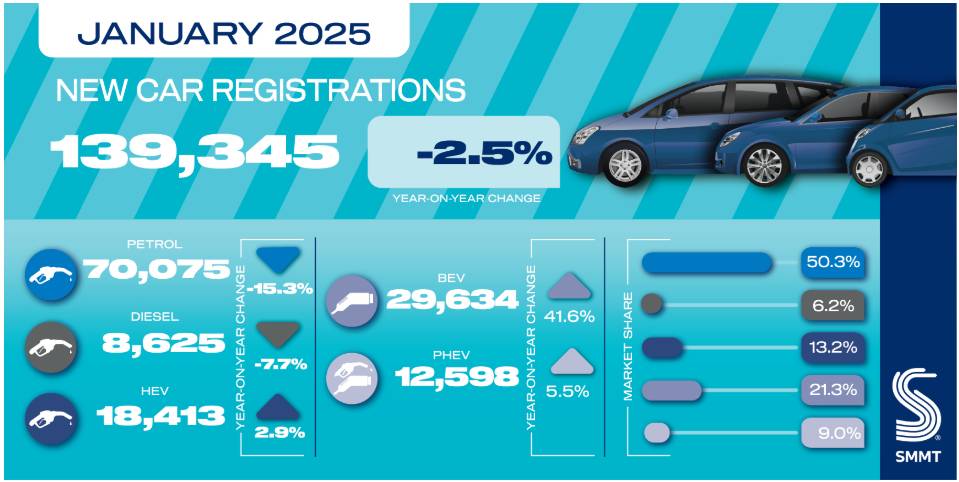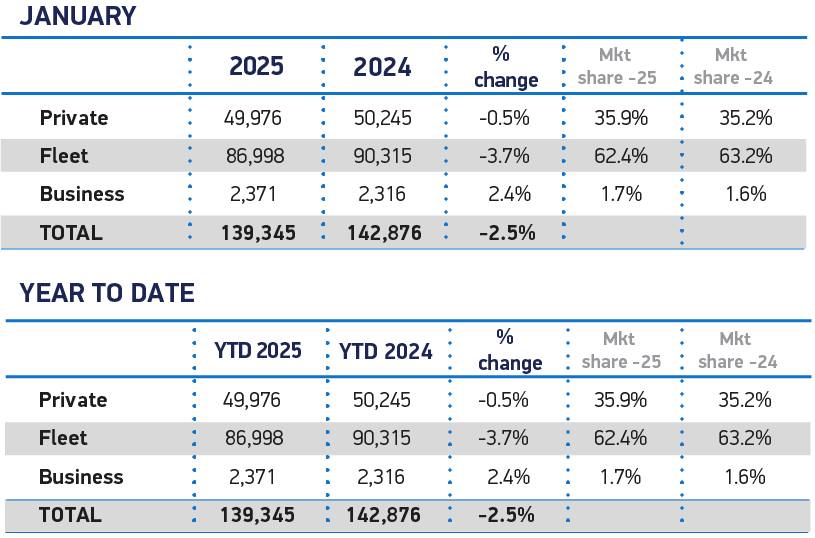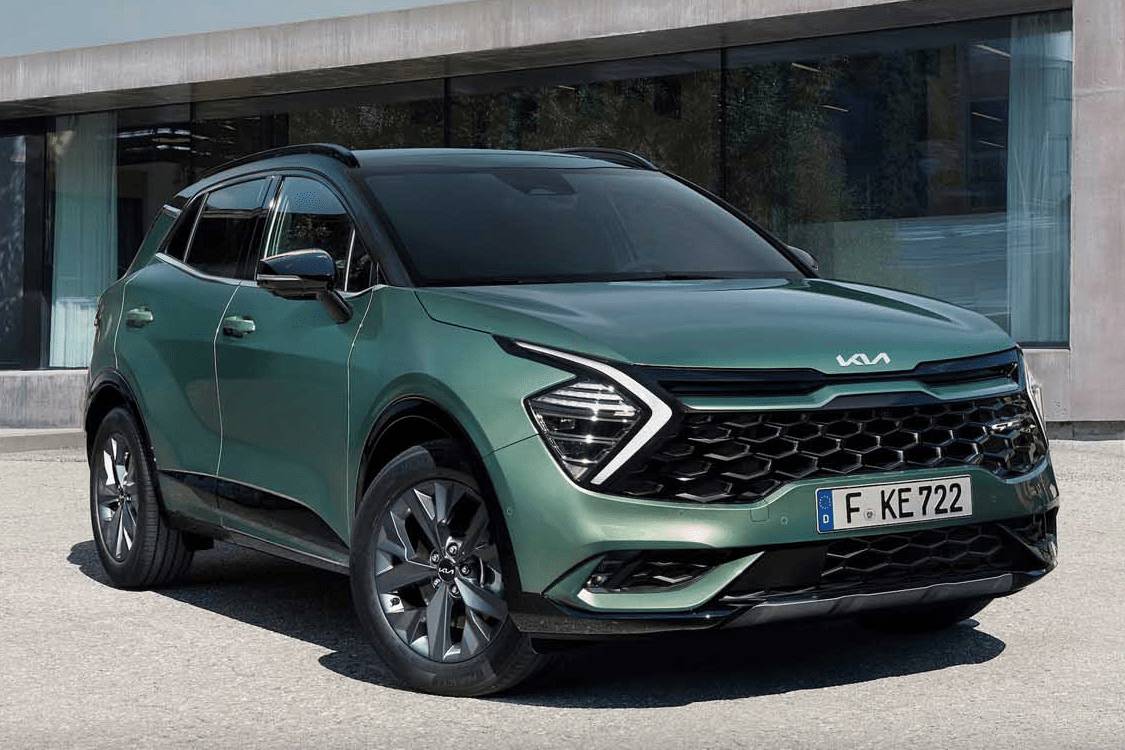UK EV market registrations continue to rise slower than targeted
The target of hitting an EV registration rate of 22 per cent was set by the UK government for last year, and the Society of Motor Manufacturers and Traders (SMMT) figures show the current registration number lags even further behind the 28% requirement set for 2025. Industry voices in the UK have already called for a halt to EV tax hikes, anticipating a 23.7% market share for 2025.
SMMT also notes that EVs have taken more than a fifth of new car registrations as the overall automobile market contracted by -2.5% to a total of 139,345 units. The slowdowns recorded by both fleet and private buyers were attributed to “weak economic confidence,” which has been an issue all over the globe.
In total, 29,634 battery-electric vehicles were registered in January, marking a 41.6% improvement to the same month last year, while PHEVs grew by 5.5% to a total of 12,598 vehicles. The combustion car market is steadily declining, showing a year-on-year change of -15.3% and -7.7% for petrol and diesel cars, while HEVs are maintaining a rather steady course of 2.9% growth on a total of 18,413 vehicles. This means petrol cars now comprise just over half of the car market, with second place going to BEVs at 21.3 per cent.

Compared to 2023, which saw about 315,000 electric cars registered in total, the registration rates of electric vehicles are steadily growing. By 2024, this number had grown to a yearly total of over 380,000, marking the UK market’s second year of growth. However, while the total market growth proved to be in the positive, the numbers were basically carried by fleet operators. This time, fleets declined, while businesses grew as a segment, however, the total number registered as business vehicles stands only at 2,371 vehicles.

SMMT described this as “record but unstainable levels.” In order to help bring the private market back, the “government must do more to stimulate private demand and challenge chargepoint operators to accelerate rollout, ensuring the UK has a reliable, affordable and comprehensive nationwide network of infrastructure.
“January’s figures show EV demand is growing – but not fast enough to deliver on current ambitions. Affordability remains a major barrier to uptake, hence the need for compelling measures to boost demand, and not just from manufacturers,” explained Mike Hawes, SMMT Chief Executive, adding: “The application, therefore, of the ‘Expensive Car Supplement’ to VED on electric vehicles is the wrong measure at the wrong time. Rather than penalising EV buyers, we should be taking every step to encourage more drivers to make the switch, helping meet government, industry and societal climate change goals.”
As for the most popular models of January 2025, no purely electric car made the cut, however, the Nissan Qashqai made it to second place, behind the Kia Sportage, both hybrid models.





0 Comments